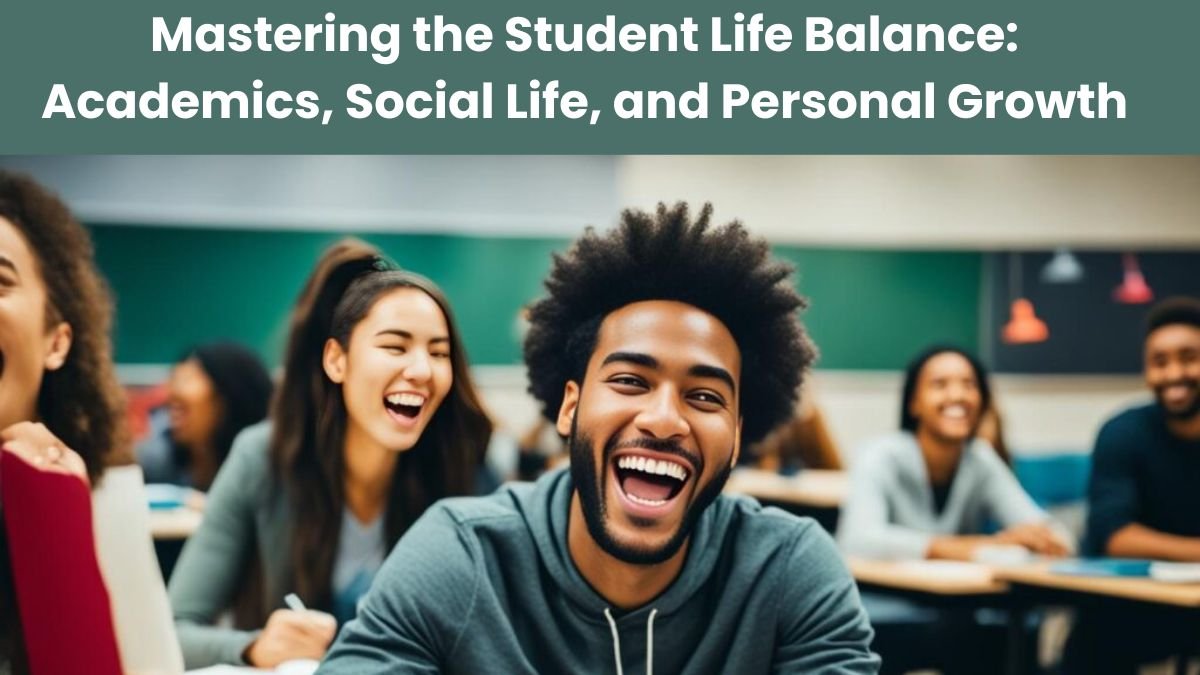Introduction: Student life is often called the “best phase of life”. It is the time when we dream, set goals and lay the foundation for our future. But in this wonderful time, maintaining a balance between studies, social relationships and our own development becomes a big challenge.
While competition is increasing in the modern education system, the pressure of academic performance, social expectations and mental health concerns on students are constantly increasing. In such a situation, balancing has become an art that every student needs to learn.
Studies: It is a priority, but not a burden
Education is the primary goal of all students, and when the study turns into a burden, the grades, as well as mental and physical health issues, are wrongly influenced by it. Think of studies as road to the destination not as a burden.
- Manage time: Make a timetable for every day that balances the subjects.
- Take breaks: Studying for 3-4 hours continuously is not beneficial. Take a 10-minute break after studying for 50 minutes.
- Adopt a practical approach: Study with understanding instead of just memorizing. Group study can also be helpful.
Social life: Importance of friendship, family and connections
Humans belong to social species, and this fact does not leave the students aside. Friendly communication with friends, being with family and engaging in the social life are the key to keep your mind in the right balance.
- Have quality friends: Your peer group has a direct influence on the way of thinking and priorities.
- Close contact with relatives: Communication with parents and siblings cheers the human up.
- Attend social gatherings: College fests, cultural programs, volunteering, etc. will give you confidence.
Self development: Inject yourself
Not to mention academic grades, social circle, one thing that is the most helpful in future is your personal growth. Getting to know yourself, identifying what you can do and making it better should be processual.
Put some time into learning new things: Communication, public speaking, or digital skills can all be learned in their spare time.
Make a personal reflection: Reflect on the day and answer yourself questions 10 minutes before you go to bed at night, such as, What did I learn today? Did I feel happy?
Health and fitness: Yoga, exercise or walking maintains the body and the mind in good shape.
How to deal with stress?
Stress has become a common problem for students today due to increasing coursework, assignments, exams and personal life.
- Mindfulness and meditation: Meditation and deep breathing techniques bring mental peace.
- Don’t be afraid of counseling: If the situation is getting out of hand, talk to a college counselor.
- Lower expectations: Do not have unnecessary expectations from yourself and others.
Balance social media
In today’s digital age, social media has become an integral part of student life, but its excess not only wastes time but can also harm self-consciousness.
- Do digital detox: Stay away from mobile for a few hours a day.
- Watch positive content: Motivational videos, educational channels etc. are beneficial.
- Avoid comparison: Stop comparing your life with others’ profiles.
Use weekends properly
If you are busy with classes and studies for five-six days a week, then weekends are an opportunity to recharge yourself.
- Take active rest: Watch movies, take up hobbies, go out but do not become completely inactive.
- Review the week: Review what has been done, what is left – and plan for the next week.
Keep objectives and goals clear
Without goals, life is directionless. Students should set both small and big goals.
- Adopt SMART Goals: Make specific, measurable, achievable, relevant and time-bound goals.
- Make a To-Do List: Write down daily tasks and tick them as soon as they are completed – this increases confidence.
Do not be afraid of failure
Failure is also a part of student life. It is not necessary to succeed every time, but it is important to learn from every failure.
- Have a learning attitude: Instead of “Why did I fail?” think “What can I learn from this?”
- Take inspiration from role models: Read stories of great people – they too have faced failure many times in life.
Make learning a part of life
Education should not be limited to just passing exams. There is a lot more to learn beyond studies.
- Practice self-learning: Read books, learn from YouTube videos, do new courses.
- Be curious: Learn to ask questions like “why”, “how”, “what will happen if”.
Enjoy every moment of your student life
Finally, student life is a time that never comes back. In between studies and responsibilities, there should be plenty of moments of laughter, fun, adventure and friendship
Make memories: Trips, college fests, birthday parties – enjoy these moments.
Capture moments in photos and diaries: This will help you connect with yourself in the future.
Conclusion:
Balancing studies, social life and personal growth in student life is not easy, but it is not impossible either. It is a continuous journey in which a little discipline, positive thinking and introspection can give you the balance that will not only make you a better student, but also a better human being.
